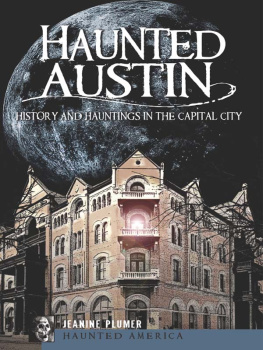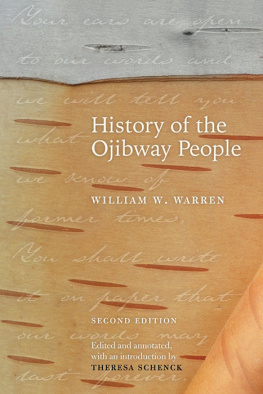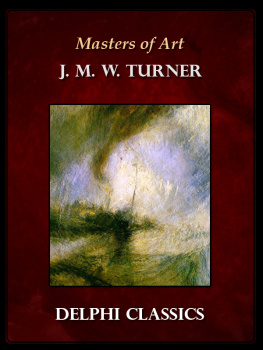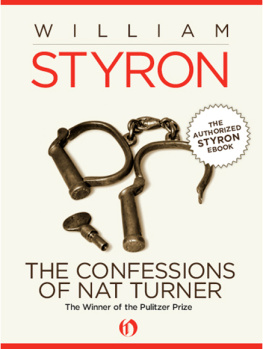William Plumer of NEW HAMPSHIRE 1759-1850
The Institute of Early American History and Culture is sponsored jointly by the College of William and Mary and Colonial Williamsburg, Incorporated, Publication of this book has been assisted by a grant from the Lilly Endowment, Inc.
WILLIAM PLUMER
In his autobiography, Plumer wrote that this portrait was taken, at the city of Washington, in January, 1804, by Charles St. Memin, & was at that time a correct likeness. Reproduced from Elias Dexter, The St.-Meinin Collection of Portraits (New York, 1862).
Preface
THE time and energy spent on this book are justified, in my opinion, by the conviction that William Plumer is a figure in American history deserving more than the fleeting recognition he has hitherto received. I stumbled upon him while searching for a suitable dissertation topic, but hundreds of serious students of American history have never encountered him. Yet it seems to me that he embodies so much of the essential character of his times that his biography serves as a significant commentary on forty years of American history.
During the years in which I have worked on this book I have incurred so many obligations to so many generous professors, librarians, editors, and administrators that I cannot possibly name them all. I hope that some of them will read this book, and remember the part they played in making it possible. One name, however, I must mention. I began this study as a doctoral dissertation under Professor Frederick L. Merk at Harvardfor me, a most fortunate circumstance. His patient assistance, his constant encouragement, and the communication of his own deep insights into American history, are responsible for much of whatever merit this book may possess.
CHAPTER I
Newburyport and Epping
The little knowledge I have gaind
Was all from simple nature draind;
Hence my lifes maxims took their rise,
And hence my first hatred unto vice.1
ON June 25, 1780, a dark, slender, New England farmer boy named William Plumer reached his majority. Although he had better than average intelligence, there was nothing very remarkable about the young man; his formal education was slight, he had little property and no important connections.
Yet, the Plumer family tree was rooted deeply in New England soil. Young William could trace his paternal ancestry through five generations to a progenitor who participated in the Puritan migration of the1630s. Francis Plumer had come from either England or Wales in 1633 and settled as one of the original proprietors at Newbury, Massachusetts, in 1635. From this fountainhead, the Plumer clan had flowed copiously until, by 1780, the descendants of Francis were scattered widely throughout northern New England and as far westward as the Ohio country. For the most part, the Plumers had been respectable, substantial yeomen and artisans, supporting the church and civil authority by their taxes, taking their turns at the onerous duties of town office, drilling in trainbands, and fighting when their leaders decided that fighting was necessary. Here and there a Plumer had risen above the level of mere good citizenship and had entered a profession, become a master-mariner, gained wealth in trade, or represented his town in the colonial legislature.
Williams father, Samuel Plumer, was the third child in a family of twelve. Three such prolific generations had so far subdivided the lands of the clan that Samuel could not be provided with a farm when he married. Accordingly he was bred to a trade in Newburyport and set up a cordwainers shop in which he prospered. But his love of the soil was strong, and as soon as he had accumulated enough money he purchased a good farm in Epping, New Hampshire, and moved there with his family in the autumn of 1768. The records do not reveal why Samuel Plumer chose to settle in Epping rather than join other members of the family who were migrating to the frontiers of New England and New York. Whatever the reason, the ex-cordwainer quickly became a hardworking, thrifty Yankee farmer. He regarded debt with abhorrence, interfered as little as possible with his neighbors, shunned lawsuits, made cautious donations to the poor, avoided politics, and preserved thro life the character of a man of unblemished integrityhonest, fair & honorable in all his dealing & transactions. A powerful man, six feet in height, with the physique of an athlete, he was a keen participant in the village weight-lifting and wrestling contests, in which he subdued no less an opponent than Henry Dearborn, although the future Secretary of War was thirty years his junior.2
Unlike his father, William was a frail boy inheriting his slender constitution from his mother, nee Mary Dole, who was also descended from one of Newburys first families. In spite of her small stature, poor health, and constant toil, she bore six children and lived to be sixtynine years of age. William, who was not much given to sentimentalism, described his mother with prosaic tenderness: She was a woman of good understanding, but not much improved by education, or reading, except religious books. Her piety was pure, practical, & unaffected.... No person had a better disposition& during the many years I lived with her I never saw her angryno, not for a moment.3
William, the eldest son of this exemplary couple, was born on June 25, 1759, in his fathers house in Newburyport. His schooling began when he was four, but ended when he was seventeen, and consisted entirely of reading, writing, spelling, and arithmetic so far as thro the square root. Plumer spent five years in the South Writing School of Newburyport, a town noted throughout New England for the way in which its schools were honorably supported.4 With the sympathetic help of his instructor Stephen Sewall, young Plumer made rapid progress in his elementary studies and stood at the head of his class in the still inchoate science of orthography.
William did so well that Sewall urged Samuel Plumer to prepare his boy for college. The father, however, believed that the time and money which William would expend at preparatory school and college could be better used elsewhere, and William was not eager to leave home for the strange environment of a boarding school. In later life he realized that he would have profited by college training, although he retained a naive mixture of admiration and contempt for book-learning that is a frequent characteristic of self-made men. I lost the advantages that others enjoyed at colleges, he wrote, but I escaped the evil examples that too often prevail at those seats of science.5 Indeed, William somehow acquired a genuine thirst for knowledge and love of learning which often escape the college graduate.





![William Richards - The History of Lynn, Vol. 1 [of 2]](/uploads/posts/book/431254/thumbs/william-richards-the-history-of-lynn-vol-1-of.jpg)






